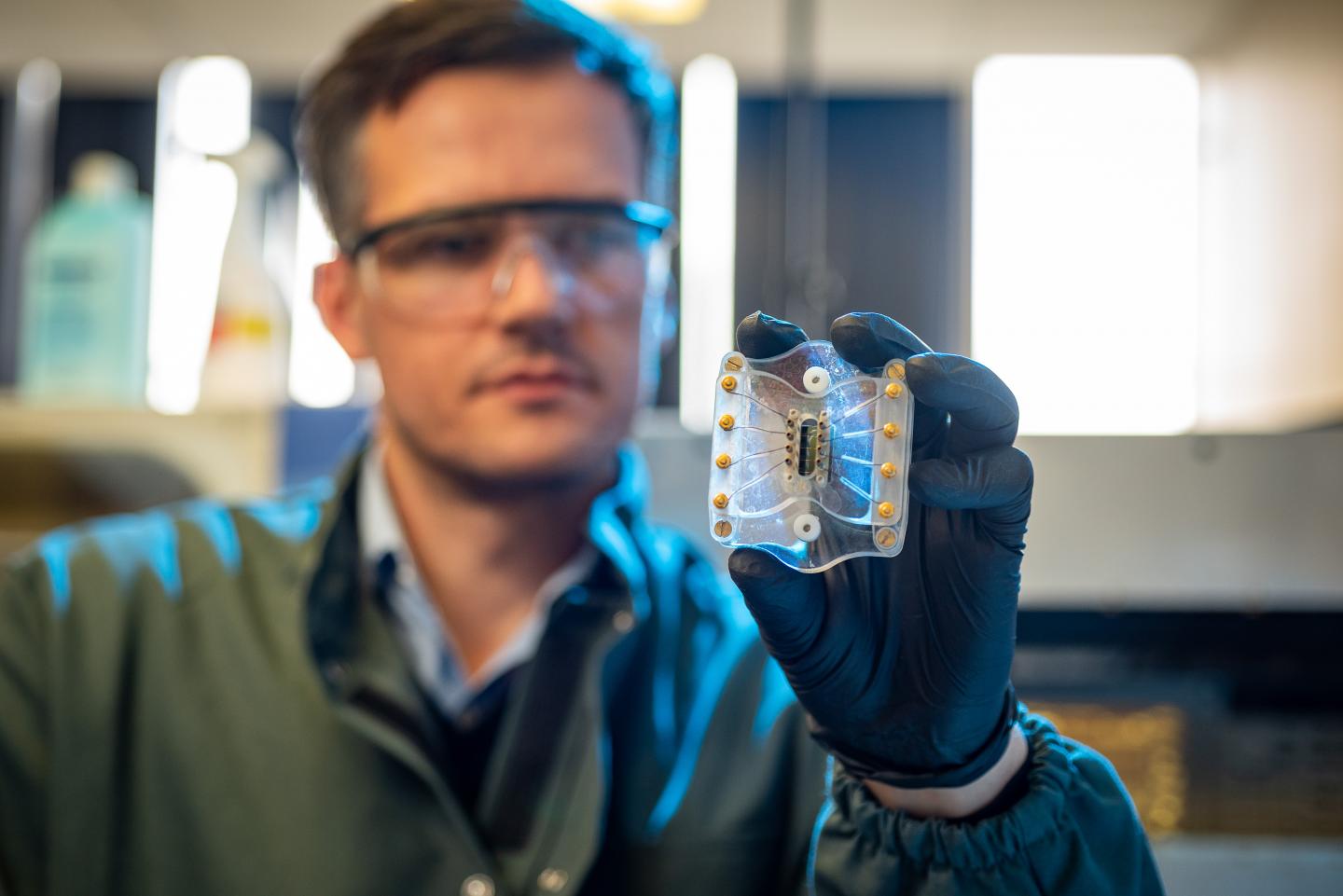Researchers from the University of Bath are developing a new tool for detecting the presence of Dengue fever early on, helping prevent people from suffering potential life-threatening complications.

Credit: University of Bath
Dr Paulo Rocha from the University of Bath’s Department of Electronic & Electrical Engineering is developing a low-cost integrative sensing tool for early detection of Dengue virus, using a novel platform containing electrical sensors to investigate the behaviour of human cells infected with Dengue virus.
When someone is infected by the Dengue virus it produces proteins, particularly ‘non-structural protein 1’ (NS1) which is secreted from infected cells. Using a three centimetre squared platform, the Bath-based research team will observe the electrical behaviour of human cells in vitro infected by different concentrations of NS1.
A better understanding of the electrical behaviour of these cells, the researchers believe, will help create a more accurate and sensitive way of detecting the presence of Dengue virus.
In the future, it is hoped this research will lead to the development of a low cost, disposable, real time wearable system for detecting Dengue fever as well as Zika virus and Yellow Fever virus, both of which belong to the same Flaviviridae family. This will be of particular benefit to communities in developing countries where access to healthcare may be limited and Dengue fever is particularly prevalent.
Dengue fever is an incurable mosquito-borne tropical disease initiated by the Dengue virus. It is spread by mosquitos mostly in tropical and subtropical areas of the world with symptoms ranging from fever and muscle/joint pains to life threatening Dengue hemorrhagic fever. Each year it is estimated 390 million dengue infections occur around the world. Of these, 500,000 cases develop into dengue haemorrhagic fever which results in up to 25,000 deaths annually worldwide.
A method that doctors currently adopt to test for Dengue fever is by examining the presence of NS1 in a patient’s bloodstream through a simple blood test. However, many people who are infected by Dengue virus may not be diagnosed due to the concentration of NS1 being so low and therefore not detected. This prevents correct diagnosis and the early intervention of drugs to counteract and reduce the effects of the virus.
Lead researcher and Assistant Professor in the University of Bath’s Department of Electronic & Electrical Engineering,
Dr Paulo Rocha, said: “If we can detect Dengue fever earlier on, we can ultimately efficiently treat a person’s symptoms and prevent the virus from developing into a more serious infection.
“By determining if there is a correlation with a cell’s electrical signal and the presence – no matter how little the concentration – of NS1, we can identify if someone is infected with Dengue virus earlier.”
###
Media Contact
Robert Breckon
[email protected]
Original Source
https:/




